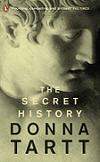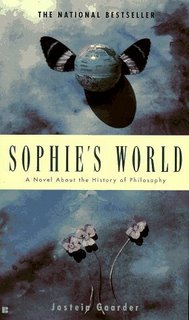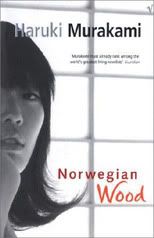
Being a parent is the biggest joy you can ever recieve in the world, cynicism aside, Khairul. Sure we can be jerks to our parents 80% of the time, and we're parasites, feeding off their money and goodwill, but it's an evolutionary as well as religous imperative(one of the only places where they actually agree) that we pass our genes on to the next generation. And of course, since some of us hate our parents more than others, it doesn't mean that being a parent has to suck, unless of course, if you're just that selfish -you like your money being spent on yourself, thank you- or maybe because you're just helpless when it comes to taking care of yourself, let alone a child. In that case, well evolution wins - your genes probably don't deserve to be carried on anyway.
But I digress.
In any case, you know how people believe that no matter how bad things get, your parents will always have this innate love for you that can't be changed? Well this book questions that. In a sense, it's the direct opposite of the Mitch Albom book I reviewed before this one. The story is about Eva Khatchadourian (I do hope I got that spelt right), whose son, Kevin killed seven classmates, a teacher and a cafeteria worker in school with a semi automatic. The story is told via a series of letters written by Eva to her estranged husband, and recounts everything about Kevin as she tries to understand why he turned out the way he did.
Worried that her son's psychopathic tendencies may have resulted from her deficits as a mother, Eva probes the most intimate and shocking aspects of her inner life, her marriage, and her resentment of motherhood. The book tackles the sensitive proposition that mothers can be unmoved by -and even dislike- their own children. Eva struggles with her lack of ready emotion from the moment Kevin is placed in her arms and the subsequent hellish years of raising a boy who seems to enjoy nothing more than taunting his mother. Having dramatically scaled back on her career, she becomes a stay-at-home mom only to discover that her son, while seemingly slow, is whip smart and vindictive - and cunning enough to play for his father with disastrous results.
This book, on the whole is disturbing on so many levels. Not that it's hard to imagine hating your own child when he/she makes life hard for you. This book suggests that a mother can resent you from the moment you were born. The moments explored throughout the book show us the complex emotions involved on Eva's side, though we are often reminded that they are recounted as she remembered them. She acknowledges that some parts may have just been dramatized because, well, when you're in the shoes of the so-called-victim (and some of us like to play that part oh so well), you tend to dramatize events.
So is it really her fault that Kevin turned out the way he did? Or was it unavoidable? Was he just born to be a killer? Read the book and decide for yourself. If anything, the book kept me turning pages - but that's because I dig this sort of thing. Don't expect it to be the kind of book that makes you smile and feel good though - as I said before, this book is just poles apart from Mitch Albom.
In the meantime though, the award for best birthday present goes to Feera.
9 out of 10.
PS: Notably, the ending has a twist I didn't see coming. Now that doesn't happen very often anymore.

















